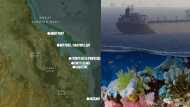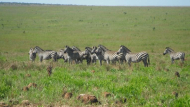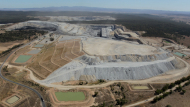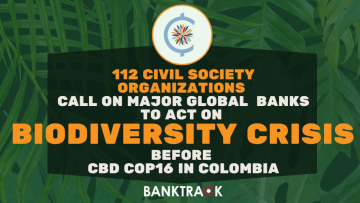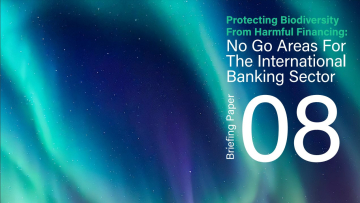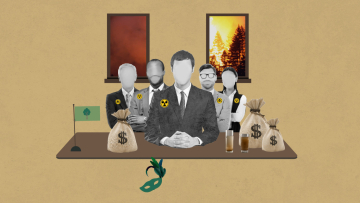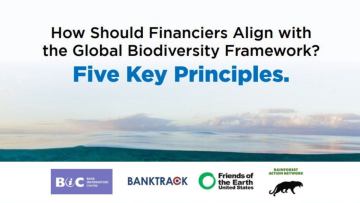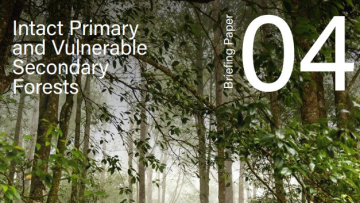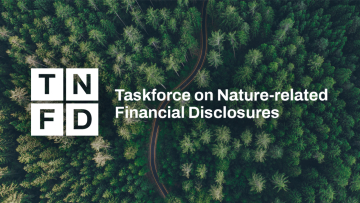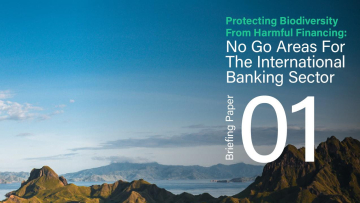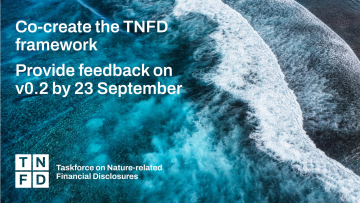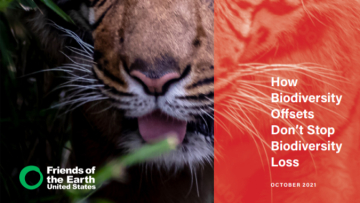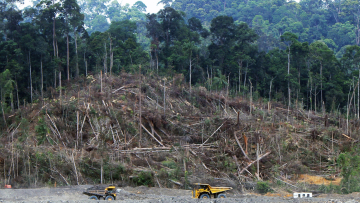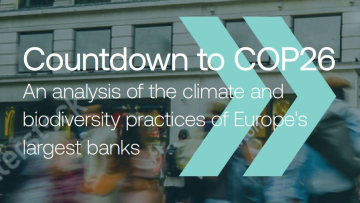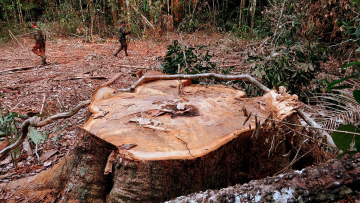Banks and biodiversity

Loss of biodiversity is a planetary emergency. A report on the Economics of Biodiversity states that many ecosystems have been degraded beyond repair or are at imminent risk of reaching ‘tipping points’, which could have catastrophic consequences for our planet. Maintaining ecosystem balance and biodiversity is vital in climate regulation, carbon capture and the prevention of newly emerging diseases. Vast amounts of biodiverse land serve as home to many Indigenous peoples and traditional communities. In order to safeguard biodiversity, banks must act urgently and decisively to address the impacts linked to their financing that contributes to biodiversity loss.
Tropical and subtropical forests are ecosystems that harbour the greatest biological diversity globally and store about 70% of the carbon in forests worldwide. Yet they have been largely threatened by changes of land use caused by large-scale commercial agriculture - the main cause of deforestation (40%) - local subsistence agriculture (33%), infrastructure (10%), urban expansion (10%), and mining (7%). The planet’s largest rainforest, the Amazon, is being ravaged by catastrophic fires due to advancing monoculture plantations, mining, and illegal logging. Lake Baikal, the world’s largest and deepest freshwater lake, is suffering with the intense impacts of mining and water infrastructure. Half of Australia's Great Barrier Reef is now dead due to coal and gas projects and Ramsar Wetlands in Uganda are being threatened by construction of the massive EACOP pipeline.
Restoring and protecting these ecosystems is one of the most effective strategies for tackling climate change. Rainforests like the Amazon act as carbon sinks and are a vital regulator of climate change by removing one quarter of the carbon dioxide emitted into the atmosphere by humans. Coral reefs harbour the highest biodiversity of any ecosystem globally and provide a wide variety of ecosystem services such as protection from flooding and sustaining the fishing industry. Coral reefs are estimated to directly support over 500 million people worldwide, through providing daily subsistence food. A 2015 study by the WWF projects that the climate-related loss of reef ecosystem services will cost at least US$ 500 billion per year by 2100. Healthy ecosystems will be more resilient to climate change and so more able to maintain the supply of ecosystem services on which our prosperity and wellbeing depend.
The World Economic Forum ranks biodiversity loss and ecosystem collapse as one of the top five threats humanity faces in the next 10 years. A broad range of human rights depend on thriving biodiversity and healthy habitats and ecosystems. These include not only the right to a safe, clean, healthy and sustainable environment, but also the right to food, clean air and water, health, culture and the right to life. Conversely, biodiversity and habitat loss often result in violations of these rights. Biodiversity loss disproportionately harms those who are already subjected to the worst consequences of climate change and are vulnerable to exploitation, such as Indigenous peoples and traditional communities, women and girls, children and youth and the poor. In 2020 alone, 277 land and environmental activists were murdered for defending their land and the planet. The destruction of nature continues to worsen the situation for frontline communities and defenders of the earth.
Multiple links exist between biodiversity conservation and the risk of future pandemics. Deforestation and agricultural system change are both considered significant factors in the emergence of zoonotic and vector-borne diseases. This is due to the fact that diseases are normally filtered and blocked by predators and habitats in a healthy and biodiverse ecosystem. However, when the ecosystem gets disrupted in favour of for example a palm oil plantation, soy fields, or other monocultures, the specialist species disappear, leaving then generalist species such as rats or mosquitoes. Thus, these species are allowed to thrive and spread pathogens across human and non-human habitats. This results in the loss of natural disease regulation. Another effect of deforestation and the consequent imbalance of the ecosystem is the fragmentation of animal communities. With the disappearance of wild animals due to deforestation, the surviving members of the species become perfect incubators for diseases as they progressively grow weaker. Moreover, the disruption of their habitats encourages those animals to search for food by venturing closer to human habitats. By entering into contact with the human population, the animals can potentially transmit the diseases that they previously developed, resulting in an outbreak. According to scientists, this is why wilderness reduction is connected to the outbreak of diseases.
Role of banks
According to an OECD report, the global financial flows that are potentially harmful to biodiversity are estimated at US$ 500 billion per year, which is almost six times more than the total spending for biodiversity conservation. Financial institutions play a critical role in accelerating or slowing and preventing key drivers of biodiversity loss based on the industries and activities they finance. It is increasingly important for banks to take decisive action to stop biodiversity loss and ensure their finance is being used to restore and protect nature. The Kunming-Montreal Global Biodiversity Framework (GBF) aims to reverse biodiversity loss through a “whole-of-society approach”, where all sectors and actors are actively engaged in addressing biodiversity loss, restoring ecosystems, and protecting Indigenous Peoples’ rights. This includes the international financial sector. The GBF explicitly calls for “aligning all relevant public and private activities, fiscal and financial flows with the goals and targets” of the framework.
What banks must do
The overall aim of the Banks and Nature campaign is for banks to protect nature and end bank finance for nature destruction. In order to achieve this, we demand from banks that they:
-
Explicitly acknowledge the urgency and severity of the biodiversity crisis and its interrelatedness to the climate crisis, and acknowledge their responsibility to ensure that the activities they finance do not lead to further ecosystem destruction and extinction.
-
Actively support and formally commit to align their business with the objectives and targets of the Convention on Biological Diversity and the goals and targets of the Global Biodiversity Framework.
-
Adopt methodologies to measure and report the impact of investments and financing activities on biodiversity, setting concrete and time-bound targets to reduce this impact.
-
Strengthen sector finance policies for high impact industries to ensure they adequately safeguard biodiversity, including proper due diligence impact assessments for each sector, and respect the rights of Indigenous peoples, local communities, and human and environmental defenders as custodians of nature.
-
Exclude finance for specific very high impact business activities and adopt No-Go policies which prohibit any direct or indirect financing related to unsustainable, extractive, industrial, environmentally, and/or socially harmful activities in or which may potentially impact high level biodiverse areas.
-
Not provide finance to carbon and biodiversity offset projects based on the concept of “no net loss”.




